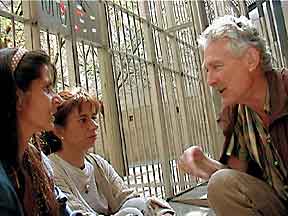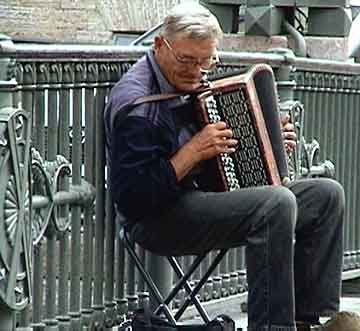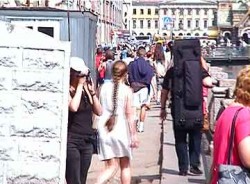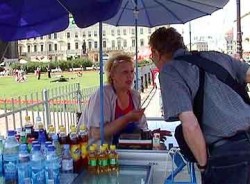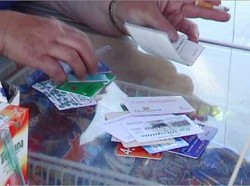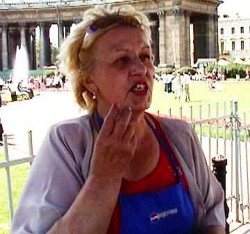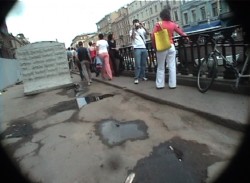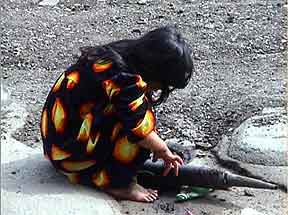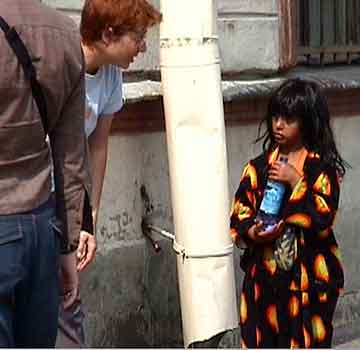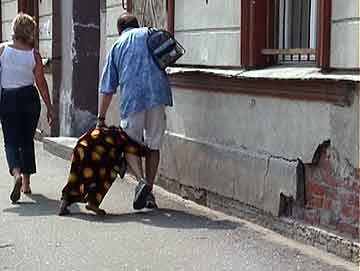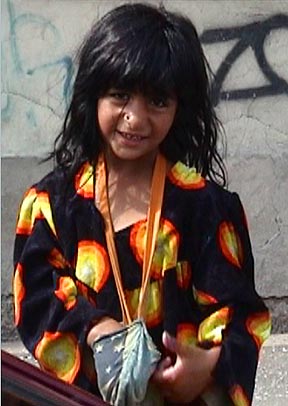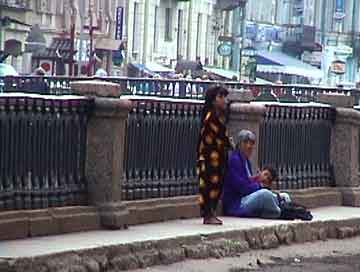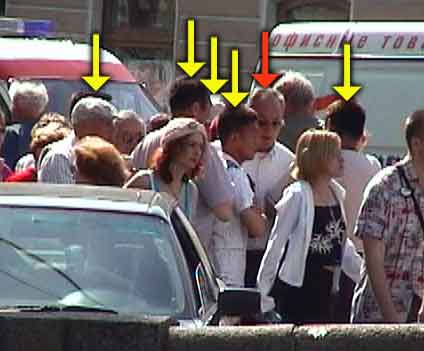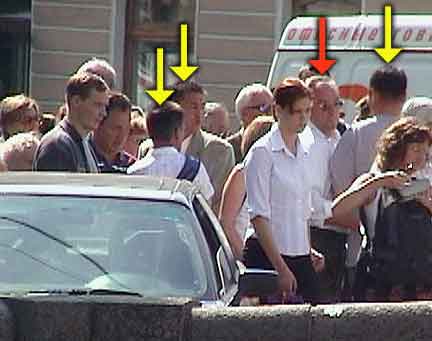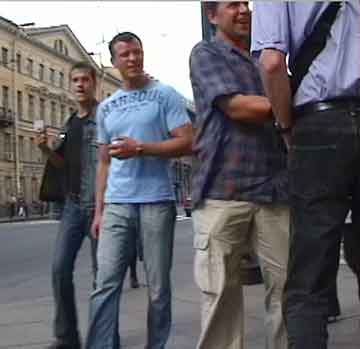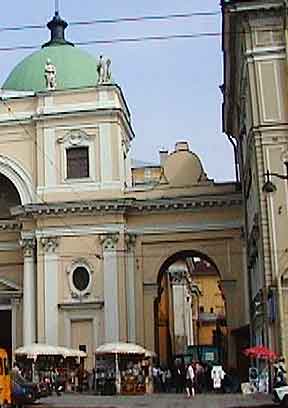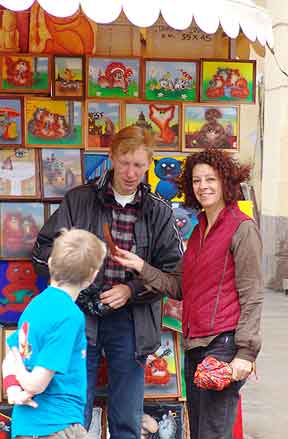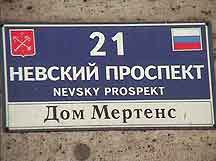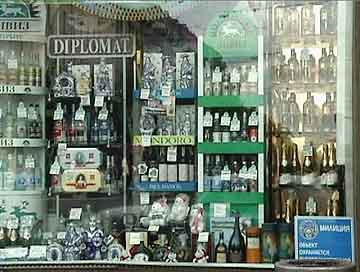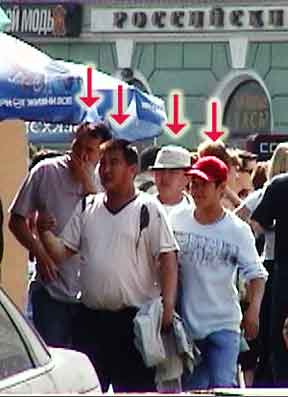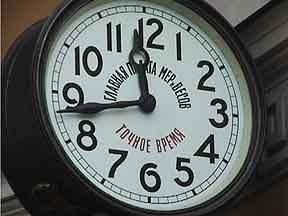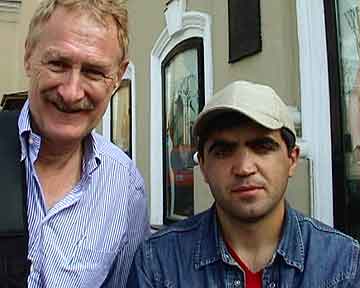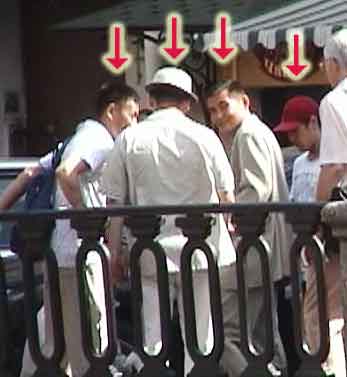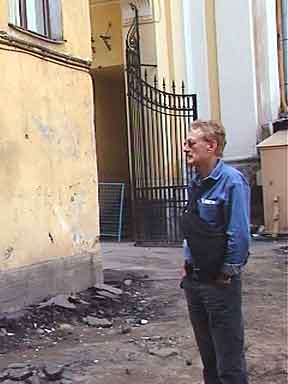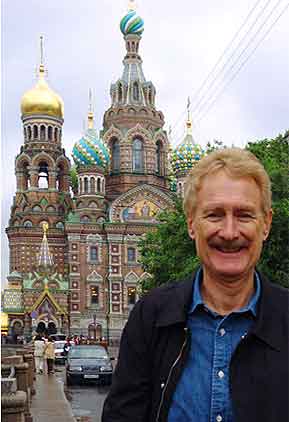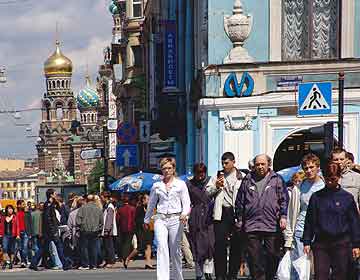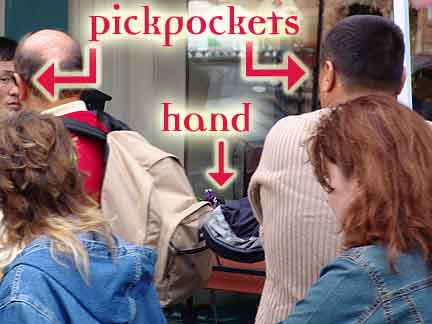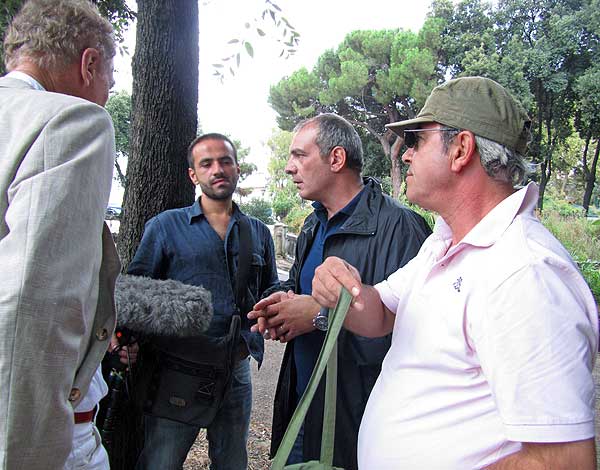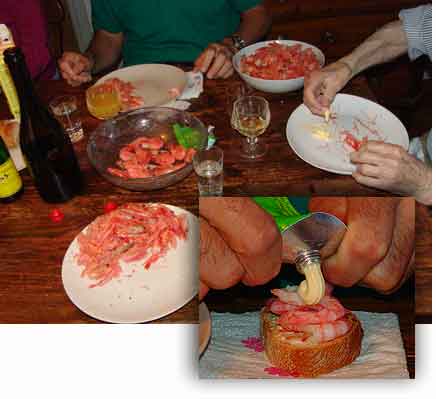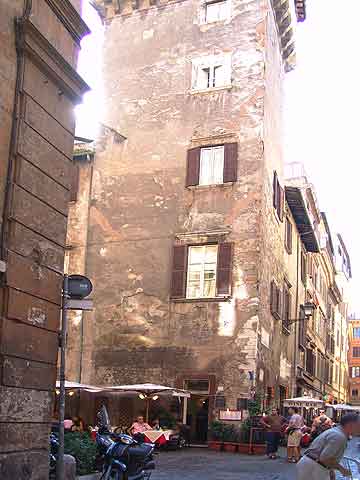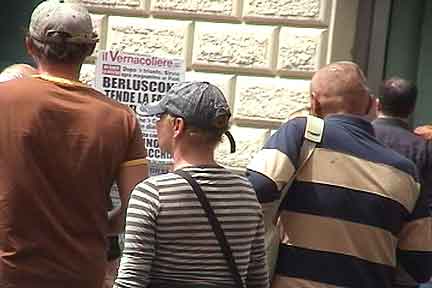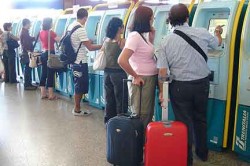
Rome, Italy—Termini Station serves up buses, trains, and the subway. Four long rows of ticket machines busily dispense tickets and confound travelers. Traffic is brisk. Meanwhile, thieves and con artists loiter, watching. Bob and I loitered, too.
An unkempt man pushed in close to a family trying to figure out the machine. The man kept offering advice, though he clearly hadn’t a clue about the machine. The family repeatedly waved him away. After a while he moved to another group at a machine halfway down the row, where he was equally unwelcome.
A pair of cops sauntered past and Bob had a conversation with them. Berlusconi’s drastic anti-immigrant program has not made a dent in crime, these and other cops told us. Bob strolled with the patrolling police while I took up a position next to the new plexiglass wall that protects ticket-buyers at agent windows from pickpockets and bag thieves. No longer do mobs press against passengers who must set down bags and fumble with wallets while buying tickets.
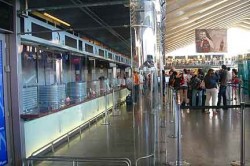
Unattended luggage caught my eye. A large suitcase topped with a sleeping bag stood several yards away from the ticket machines. Who could have turned his back on his belongings in such a place?
Bob returned with the police, who removed the troublesome wastrel from the midst of the ticket machine crowd. I could be wrong, but it appeared they photographed him first with a mobile phone camera.
Bob and I scrutinized the messy line of machine-users, trying to guess who the unwatched bag belonged to. Few by few, people left the machines and the bag remained. Eventually, only one young couple remained, the rest of the crowd being freshly arrived and unattached to the lonely luggage. But this couple never glanced toward the baggage at all. Either it wasn’t theirs, or they were part of a sting, as demonstratively ignoring their stuff as I had years before in a casino coin-pail operation.
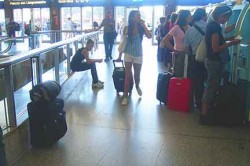
As the minutes went by, Bob’s and my amazement grew. We discussed the possibilities: police baiting bag thieves; a daring drug deal in which the suitcase contained cash or contraband; a frazzled traveler who’d shortly return for the forgotten thing, panting and train long gone. We kept our eyes on the bag.
A man came up to us and began a long tale in Italian. He was 60 or so, and looked like a grizzled businessman dressed in city-casual: a button-down shirt tucked into belted gabardines. He might have worn a sport coat, I’m not sure. We glanced at him and let him ramble as we kept watch on the suitcase, wondering what his scam was. His tone was moderate, a little confidential, a little urgent. He asked a question and from his baggy pants pocket pulled out an enormous wad of euros, bound by a thick rubber band. He switched to mostly unintelligible English, something about a bank, and persevered.
The suitcase was gone.
How? We’d been determined to see its resolution and barely looked at the interloper who’d accosted us. Had he come just to distract us? He’d certainly succeeded by flashing his money roll. We left him and rushed to the ticket machines, not twenty feet away, hoping to catch a glimpse of the bag, but it was gone without a trace.

We were angry and disappointed in ourselves. But not to despair: this was a good excuse for a consolation dinner. By accident, we found Ristorante Pizzeria da Francesco, and they had fresh porcini! Porcini will always perk me up, and Francesco served them the ultimate way: on thin, crisp pizza with a bit of mozzarella. No wonder the place was jammed with locals—well, anyway, the waiters didn’t kiss me.
![]()


